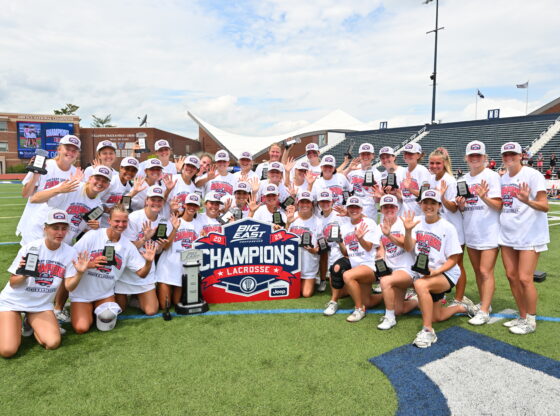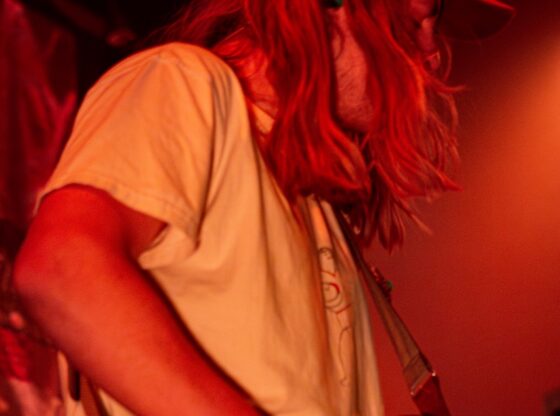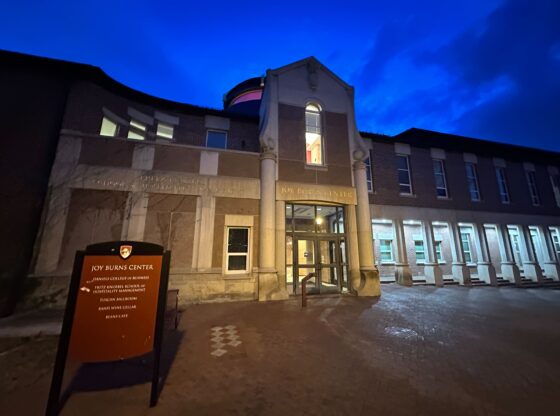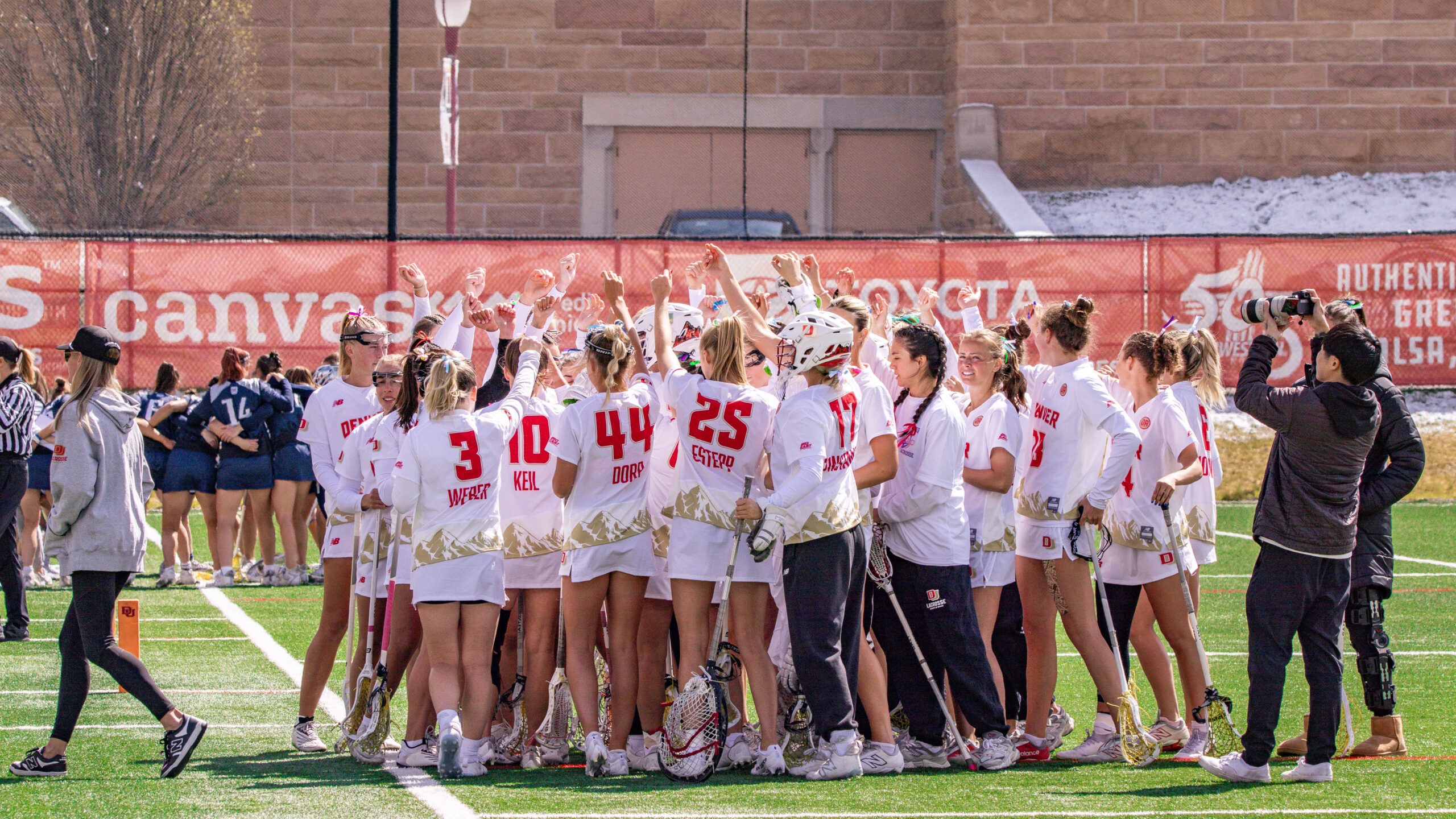On Friday, the DU faculty senate, composed of 90 professors representing the many academic departments on campus, met to discuss the university’s new interim demonstration policy and other housekeeping budget-related topics. However, during Chancellor Jeremy Haefner’s brief visit, many professors questioned the administration’s handling of the pro-Palestine encampment.
Provost Mary Clark and a few students from the encampment were also in attendance.
The Chancellor and Provost emphasized their shared commitment to student, faculty and staff safety above all else.
To maintain safety, the Chancellor said, ID checks are essential to ensure only DU members are present in the encampment. Without them, Haefner said, he cannot reassure parents, faculty, and alumni that the encampment is safe.
Haefner said that his administration has greatly struggled in this area and that although he had met with organizers and the encampments’ police liaisons to “meet them halfway,” ‘non-compliance’ continued.
Haefner, whose administration has begun issuing “interim location restrictions” to encampment members, believes that disciplinary measures are necessary to show the administration is “serious” about ID checks.
On Friday afternoon, Chief of Campus Safety Mike Bunker and another officer went to the encampment to check IDs. In an act of defiance, encampment protestors showed fake IDs with images of dead Palestinians. As many of the protestors had already received warnings for non-compliance with ID checks, additional location restrictions were issued to students, with more likely to come.
Once Q&A began, some professors voiced their discontent with the emails from the Chancellor’s office relating to the encampment.
“I have found the messages that have come out of your office about all of this very misleading and unhelpful,” said one professor.
“If any harm comes to the students, from the emails that you keep sending, painting the encampment as anti-semitic, any harm comes to them, your resignation will be the only thing acceptable,” said Associate Computer Science Professor Mohammed Albow.
Albow is referring to emails from the Chancellor’s Office to the student body that state the university has received a “troubling increase in reports of unacceptable behavior, including anti-semitism and disruption.”
Religious studies professor Dheepa Sundaram, stated she had logged 22 hours watching the students in the encampment as a marshal. She talked about how she had seen different religious rituals happening at the encampment, including an indigenous prayer song, a Buddhist mother earth prayer, a Shabbat service and a Jamaad prayer.
“This, to me, is really important, this isn’t just a protest, this is a moment of teaching and community building. I would urge you Chancellor, to just take some time to just go and listen, before we send out emails that are really concerning and going to put our students at risk,” said Sundaram.
Many professors asked the Chancellor why he hadn’t spent time observing the encampment. They also asked why he hadn’t talked to any faculty marshals who have spent long hours volunteering to keep the encampment safe.
The Chancellor said that he trusted the expertise of his faculty, but did not have a response as to why he hadn’t talked to any marshals.
Haefner reiterated that he’s worried about outside forces being present in the encampment, including national organizations that could pose a threat to students. He referenced a situation where knives and guns were found stockpiled inside a pro-Palestine encampment at DePaul University in Chicago.
Professor of Sociology Julia Dmitrieva asked the Chancellor if he’d seen any credible evidence that outside forces were entering the encampment and threatening student safety. Haefner said he had not.
Many professors were also concerned about counter-protestors.
“Why are ID checks only being applied to our protestors,” asked Sundaram “I have personally been assaulted by students yelling homophobic slurs until I told them I was faculty, and a girl tried to grab my phone.”
Sundaram’s concern was echoed by another professor, who brought up the violent storming of the UCLA pro-Palestine encampment by counter-protestors on May 1.
Other faculty marshals have also said they’ve heard homophobic slurs being levied at members in the encampment, often from people coming home drunk from bars nearby campus late at night.
According to one faculty marshal, Dr. Marie Berry, none of the faculty marshals have seen anything they believe constitutes anti-semitism in the encampment.
One professor faculty marshal, Elia Trucks, inquired further about the ID checks. She said she saw members of the administration and campus safety referring to students in the encampment by name, even knowing their major.
“Why does Mike Bunker need to see the ID of a student he personally knows?” asked Trucks.
“We believe that processes are important, and that’s why it is fair in that regard to always check,” Haefner responded.
One protestor from the encampment asked about hateful language. She said that many Jewish protestors had been called “self-hating Jews” by counter-protestors and wanted to know if the university considers that to be anti-semitism.
Provost Clark answered her question. She said that to her last count a few days prior, the university’s Equal Opportunity and Title IX office had received 12 reports of harassment. She said the reports were fairly evenly distributed between anti-Semitic and Islamophobic comments, with an overlay of homophobic, gender-based and otherwise racist comments mixed in.
Later on in the meeting, one professor asked how the university determines who is allowed to be within the perimeter of the encampment and, thus must have a DU ID. The Provost emphasized that the university utilizes a “rule of reason” to determine whether outside visitors are threats.
Recently, young children have been seen running around the encampment as community members bring their families to participate in the religious ceremonies the camp hosts, including a Shabbat celebration last Friday. The camp also invites various non-DU community members as guest speakers, including Iman Jodeh, a Colorado State Representative.
This rule of reason also extends to the university ID policy, which Provost Clark reiterated is not to identify anyone by name.
“Yesterday, when I presented our written expectations in response to a student’s request for that, I said we don’t need to know your name — cover up your name — we just want to know that there are members of the DU community present,” said Clark.
Both Chancellor Haefner and Provost Clark are trying to find ways to encourage thoughtful dialogue, like the one that took place last Thursday when the encampment first popped up.
Haefner’s administration will work with the faculty senate to outfit the DU community with better tools to communicate and have productive discussions across differences. One idea that the Provost mentioned was incorporating training in orientation week for incoming freshmen.
After the Q&A with the Chancellor concluded, Professor Trucks submitted a resolution in support of the encampment protestors.
The resolution asks DU to cease disciplinary action against students, emphasizing free speech now and in the future. The faculty senate will vote on this resolution in their next meeting. If passed, the resolution would become an official statement released on behalf of the Faculty Senate.











